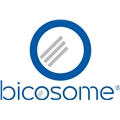- Inicio
- Centro
- Institutos
- Biblioteca
- Projectes
- Igualdad
- Comisión de igualdad
- Sala de lactancia
- Lavabos sostenibles para uso menstrual
- III Plan de Igualdad entre Mujeres y Hombres en el Consejo Superior de Investigaciones Científicas
- Protocolo de prevención e intervención frente al acoso sexual y al acoso por razón de sexo en el CSIC
- Documentación buenas prácticas
- Exposiciones
- Intranet CID
- Contacto
Centro de Investigación y Desarrollo
The PhD Researcher Mercè Hereu from the IQAC will defend her PhD thesis

Mercè Hereu from the IQAC will defend her PhD thesis on 19th July at the Faculty of Biology.
Title: Role of D-Fagomine and Omega-3 polyunsaturated fatty acids on gut microbiota and related metabolic changes in healthy rats and in a model of fat-induced pre-diabetes
Speaker: Mercè Hereu
Directors: Sara Ramos Romero, Researcher at IQAC-CSIC and Marta Romeu, Researcher at Rovira i Virgili University
Date: Friday, 19th July 2019
Time: 10:00 am
Venue: Aula Magna Facultad de Biología (UB)
Abstract:
 Modern lifestyles in an increasing number of human societies include consuming an excess of saturated fats and refined sugars. Maintaining the appropriate distribution of gut microbial populations is emerging as an attractive approach to prevent fat accumulation and insulin resistance (IR), and to avert the progression of diabetes. d-Fagomine is an iminosugar with the capacity for selectively inhibiting bacterial adhesion to the intestinal mucosa. ω-3 Polyunsaturated fatty acids (PUFAs) reduce blood pressure and the levels of insulin, triacylglycerols and cholesterol. Iminosugars and ω-3 PUFAs may be used as functional food ingredients to maintain a healthy status over time and to reduce risk factors for diabetes.
Modern lifestyles in an increasing number of human societies include consuming an excess of saturated fats and refined sugars. Maintaining the appropriate distribution of gut microbial populations is emerging as an attractive approach to prevent fat accumulation and insulin resistance (IR), and to avert the progression of diabetes. d-Fagomine is an iminosugar with the capacity for selectively inhibiting bacterial adhesion to the intestinal mucosa. ω-3 Polyunsaturated fatty acids (PUFAs) reduce blood pressure and the levels of insulin, triacylglycerols and cholesterol. Iminosugars and ω-3 PUFAs may be used as functional food ingredients to maintain a healthy status over time and to reduce risk factors for diabetes.
This thesis focuses on the effects of d-fagomine, ω-3 PUFAs (EPA/DHA 1:1) and their combination on the gut microbiota and related metabolic variables in the host both in healthy rats and a rat model of fat-induced pre-diabetes.
We found first that d-fagomine had the capacity for promoting microbial functional diversity by increasing the Bacteroidetes/Firmicutes ratio and for mitigating the age-related reduction of putatively beneficial bacteria in healthy rats. Moreover, the combination between d-fagomine and ω-3 PUFAs helped to stabilize the populations of Prevotella in the gut while reducing weight gain and providing the anti-inflammatory effects of ω-3 PUFAs.
Then, we explored the effects of the same supplements on rats with fat-induced pre-diabetes as a models for people at risk of suffering from diabetes. We found that d-fagomine delayed the development of a fat-induced pre-diabetic state by reducing low-grade inflammation through the reduction of fat-induced overpopulation of minor gut bacterial groups such as Enterobacteriales. The combined supplements counteracted fat-induced IR and liver inflammation, while increasing the cecal content, the Bacteroidetes/Firmicutes ratio and the populations of putatively beneficial bacteria Bifidobacteriales and Lactobacilliales.
The functional effects of the combination between d-fagomine and ω-3 PUFAs against both age- or fat-related gut dysbiosis and the very early metabolic alterations induced by a high-fat diet were mainly those of d-fagomine complemented by the anti-inflammatory action of ω-3 PUFAs.
Date:
Jueves, 18 de Julio de 2019









